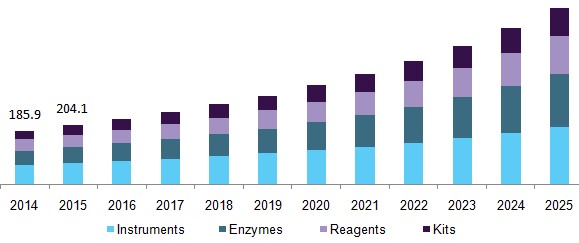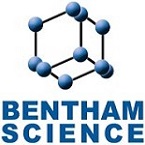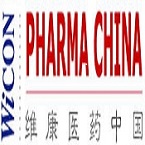Scientific Sessions
Glycobiology 2024 organizing Committee invites all the contestants across the globe to attend the 14th World Glycobiology Congress during March 07-08, 2024 Toronto, Canada.
Glycobiology 2024 is designed to meet all prominent and well-known speakers from all around the globe with delegates, exhibitors, industry experts, work shop symposiums and student delegates from glycobiology and healthcare divisions to be a part of it.
Scientific Sessions:
Track: 1 Glycosience
Glycoscience contributes in three important ways focusing on Understanding of Human health and diseases, searching for alternative sources of energy and innovating new materials. The glycoscience knowledge will be embedded in efforts to address fundamental challenges in health and sustainability.
Glycoscience deals with human health because this has been a main focus of efforts in the field of glycoscience and glycomics, mostly in the United States. Actually many scientists automatically think of health when they think of glycans and their functions. Other researchers clearly study carbohydrates and their uses (e.g., in polymer engineering), the terminology and techniques used by these fields may differ. As a consequence, the scientific community may not immediately think of the entirety of glycan research as part of a unified field of glycoscience.
-
Glycoprofiling
-
Glycoproteins
-
Glycosylation
-
Therapeutic proteins
-
Glycosaminoglycans
-
Microbial glycobiology
-
Glyconutrients
Related Associations:
Glyconet Glycobiotechnology Network | Glycoscience Graduate School | Mizutani Foundation for Glycoscience | The Japanese Society of Carbohydrate Research | Alberta Glycomics Centre | Copenhagen Center for Glycomics
Track: 2 Glycobiology
It contains the study of everything related to the structure, bio-synthesis, and biology of sugars and saccharides drawing from simple organic chemistry, molecular and cellular biology, enzymology and related domains. Like amino acids and nucleic acids, sugars are the major contributors in nature many natural products contain oligosaccharides that are important for their biological and biochemical activity and carbohydrates have major roles in a wider range of biological processes including signal transduction mechanisms and immune responses. So the study of glycan structures is also complicated by the lack of a proper and direct template for their biosynthesis, contrary to the case with amino acids and proteins.
-
Glycan linkage
-
Glycosidic bond
-
Glycoprotein diversity
-
Proteoglycans
-
N-linked glycosylation
Related Associations:
Glyconet Glycobiotechnology Network | Glycoscience Graduate School | Mizutani Foundation for Glycoscience | The Japanese Society of Carbohydrate Research | Alberta Glycomics Centre | Copenhagen Center for Glycomics | Resource for Integrated Glycotechnology | Institute of Molecular Biomembrane and Glycobiology
Track: 3 Biochemistry
Biochemistry is a sub-disciple of both biology and chemistry it is divided into three fields as Molecular Genetics, Protein biology and Metabolism. From the last ten decades of the 20th Century, biochemistry has three disciplines become successful at explaining living process. Biochemistry concentrates on accepting how biological molecules give rise to the procedures that occur within living cells and between cells, which in shot recounts greatly to the study and understanding of tissues, organs, and organism structure and function.
-
Host pathogen interactions
-
Glycan based immunotherapy
-
Glycomimetics
-
Synthesis of glycan antigens
-
Glycoconjugate vaccines
Related Associations:
Laboratory of Carbohydrate Chemistry, Institute of Bioorganic Chemistry | Russian Academy of Science | Glycoprotein Structure/Function Group, Birkbeck College | Oxford Glycobiology Institute | Centre for Glycobiology, University of Liverpool | IBS: Instituted Biology Structural | Glycoscience Team, National Centre for Biomedical Engineering Science, National University of Ireland, Galway | Glycosciences Laboratory
Track 4: Glycan’s
Glycans can be initiate attached to proteins as in glycoproteins and proteoglycans. In general, they are found on the external surface of cells. O- and N-linked glycans are right collective in eukaryotes but may similarly found, although less commonly, in prokaryotes. Glycan classifications cannot be well-defined by a simple linear one-letter code as every duplet of monosaccharide’s can be associate in various ways and tributary structures can be designed. Few of the bioinformatics algorithms established for genomics or proteomics can be straightly adapted for glycomics. The progress of algorithms, which allow a rapid, automatic interpretation of mass spectra to recognise glycan structures, is at this time the most active field of research.
-
Glycan immunotherapies
-
Glycan sensing
-
Glycosamino Glycans
-
Gene expression profiling
-
Glycan synthesis
Related Associations:
National University of Ireland, Galway | Glycosciences Laboratory |Oxford Glycobiology Institute | Glycobiology Group | Glycotechnology Core Resource | Glycobiology Research and Training Center | Glycomics CenterHeparin Home Page, Rensselaer Polytechnic Institute
Track: 5 Synthesis and Biological Role of Glycans
The biological parts of glycans can be separated into two wide categories. The structural and modulatory properties of glycans and the specific recognition of glycans by other molecules. Most commonly, glycan-binding proteins (GBPs). The biological consequences of varying glycosylation in several schemes seem to be extremely adjustable and unpredictable. A specified glycan can have diverse roles in altered tissues or at different times in development (organism-intrinsic functions) or in dissimilar environmental contexts (organism-extrinsic functions). Methods taken to know the biological parts of glycans contain the prevention of early glycosylation, prevention of glycan chain elongation, alteration of glycan processing, enzymatic or chemical deglycosylation of completed chains, genetic elimination of glycosylation sites, and the education of certainly happening genetic variants and mutants in glycosylation. Glycosylation mainly mentions in exact to the enzymatic procedure that attributes glycans to proteins, lipids, or other organic molecules. This enzymatic method produces one of the fundamental biopolymers found in cells (along with DNA, RNA, and proteins). Glycosylation also displays a role in cell-cell adhesion (a apparatus employed by cells of the immune system) via sugar-binding proteins called lectins, which identify exact carbohydrate moieties.
-
Glycoconjugates
-
Carbohydrate Synthesis
-
Glyconutrients
Related Associations:
Laboratory of Carbohydrate Chemistry, Institute of Bioorganic Chemistry | Russian Academy of Science | Glycoprotein Structure/Function Group, Birkbeck College | Oxford Glycobiology Institute | Centre for Glycobiology, University of Liverpool | IBS: Instituted Biology Structural | Glycoscience Team, National Centre for Biomedical Engineering Science, National University of Ireland, Galway | Glycosciences Laboratory
Track: 6 Evolution of Glycan Diversity
Glycans are saccharides that can be involved to a widespread variation of biological molecules through an enzymatic course called glycosylation to augment their purpose. Of the four essential building blocks of life, proteins, carbohydrates (glycans), lipids and nucleic acids, glycans have expected the smallest consideration from scientists. Glycans are found in archaea, bacteria and eukaryotes, and their various functions contribute to physical and physical integrity, extracellular matrix formation, signal transduction, protein compact and data interchange amongst cells (and pathogens). Glycans are the chief molecule on the cell surface and attend as the first point of connection between a cell and other cells, the extracellular matrix and pathogens. The amplified evolutionary pressure of being at the front lines of cellular collaboration and conflict most likely led to the diversification of glycans. Glyco-epitope diversity enriches the role of glycans in the group of debilitating and life-shortening disorders known as congenital muscular dystrophy, or CMD. Together membrane proteins and the ECM are highly glycosylated, and O-glycans are important for proper ECM function and communication between cells and the ECM. Numerous Glycoepitomics forms of CMD are well-known to result after dysfunctional O-glycosylation of membrane and ECM proteins; however, one-third of CMDs arise from an unknown genetic etiology.
-
O-Glycans
-
Glycosphingolipids
-
N-Glycans
-
Shared Outer Chains of Glycans
-
Sialic Acids
-
Glycosaminoglycans
-
Glycosylphosphatidylinositol Anchors
-
Nuclear and Cytoplasmic Glycans
Related Associations:
National University of Ireland, Galway | Glycosciences Laboratory |Oxford Glycobiology Institute | Glycobiology Group | Glycotechnology Core Resource | Glycobiology Research and Training Center | Glycomics CenterHeparin Home Page, Rensselaer Polytechnic Institute
Track: 7 Glycochemistry
Glycobiology along with the arena of proteomics, mainly the submission of mass spectrometry investigation to protein samples, is well-established and increasing quickly. Proteomics readings beside with glycan’s make large volumes of raw experimental records and conditional biological outcomes. To accelerate the propagation of these statistics, centralized facts storehouses have been advanced that make the data and results accessible to proteomics researchers and biologists alike. Experimental analysis of proteomics data repositories concentrates totally on freely-available, centralized data properties that disseminate or store experimental mass spectrometry data and results.
-
Stereochemistry
-
Regiochemistry
-
Glycomimetics Chemistry
-
Chemical Biology Probes
Related Associations:
Laboratory of Carbohydrate Chemistry, Institute of Bioorganic Chemistry | Russian Academy of Science | Glycoprotein Structure/Function Group, Birkbeck College | Oxford Glycobiology Institute | Centre for Glycobiology, University of Liverpool | IBS: Instituted Biology Structural | Glycoscience Team, National Centre for Biomedical Engineering Science, National University of Ireland, Galway | Glycosciences Laboratory
Track: 8 Glycans in Diseases and Therapeutics
Glycomedicine functions as essential role in cell-cell adhesion i.e. a device used by cells of the immune system through sugar-binding proteins called lectins, which classify precise carbohydrate portions. Glycans (carbohydrate oligomers) are the so-called “building blocks” of carbohydrates, nucleic acids, proteins and lipids play leading roles in various biological phenomena as well as in numerous pathophysiological procedures. Several scientists have now understood that glycosylation, i.e. the count of glycans to a protein backbone, is the most plentiful post translational alteration responses and is a major field of research and sometimes they require a glycobiology method to be exploited.
-
Glycomedicine
-
Transfusion medicine
-
Congenital disorders of glycosylation (CDG)
-
Cancer biomarkers
-
Cardiovascular diseases
-
Cardiac arrest
-
Cancer associated coagulopathies
Related Associations:
Glycobiology Conferences | Glycobiology Meetings | Glycobiology Events | Glycobiology Conference 2019 | Glycobiology Symposium | Glycobiology Workshop | 8th Glycobiology World Congress | Glycobiology 2019 | Biochemistry Congress | Biochemistry Meetings | Glycoscience
Track: 9 Glycans in Drug Design
Glycans are elements of numerous bio-therapeutic mediators, ranging from natural products to molecules based on rational plan to recombinant glycoproteins. The glycan components of these agents can be important aspects of their biological activity and therapeutic efficacy. Biochemistry and Glycobiology includes a multidisciplinary study of carbohydrate-binding proteins (lectins), glycolipids and some selected other plant proteins that are skilful of connecting with endogenous or foreign (macro) molecules. The eminence of the research is on protein-carbohydrate interaction and their involvement in signalling procedures in plants or in plant protection. Based on the formed fundamental alertness new methods are being industrialised to shield crop plants against pests and diseases.
-
Membrane biophysics
-
Systems biology
-
Enzyme synthesis
-
Biophysical approaches to cell biology
-
Computational and theoretical Biophysics
Related Associations:
Laboratory of Carbohydrate Chemistry, Institute of Bioorganic Chemistry | Russian Academy of Science | Glycoprotein Structure/Function Group, Birkbeck College | Oxford Glycobiology Institute | Centre for Glycobiology, University of Liverpool | IBS: Institut de Biologie Structurale | Glycoscience Team, National Centre for Biomedical Engineering Science, National University of Ireland, Galway | Glycosciences Laboratory
Track: 10 Glyconeurobiology
Carbohydrate rich molecules containing glycolipids, glycoproteins, and proteoglycans in the nervous system have main roles during progress, regeneration and synaptic plasticity. The structural variety of the carbohydrate moieties renders them ideally suited as stage-specific biomarkers for numerous cell types leading to mediate interactions amongst recognition molecules, thereby contributing to the development of a composite molecular framework at the cell surface and in the extracellular matrix of the cell. The excellent structural diversity of glycan chains and associated moieties allows for immense progressive opportunities that can leads to cell interactions alongside with cell matrix interactions.
-
Neurological disorders
-
Neurogenetics
-
Alzheimer disease
-
Neurosurgery
-
Neuropathology
-
Neurotoxicology
-
Vascular dementia
Related Associations:
National University of Ireland, Galway | Glycosciences Laboratory |Oxford Glycobiology Institute | Glycobiology Group | Glycotechnology Core Resource | Glycobiology Research and Training Center | Glycomics CenterHeparin Home Page, Rensselaer Polytechnic Institute
Track: 11 Glycopathology
Carbohydrates are fundamentally considered as main bases of structural materials and energy for living creatures. Modern investigation’s in this zone has concentrated mostly on modest basic sugars and homopolysaccharides such as, starch, cellulose, glycogen, and chitin. During the last few decades, the academics have lifted their attention on composite systems like carbohydrates, especially proteoglycans, glycolipids and glycoproteins which are together mentioned to as glycoconjugates that displays the prospective of recognition markers in the biological system which also relates to other biomedical and clinical fields. The roles of glycans and glycoconjgates in cancer have been emphasizes, because a small modifications in glycosylation can tremendously regulate the complete pathway and mechanisms of cancer, which indicates to an indication as a biomarker growth leading to several therapeutics development in cancer research.
-
Cancer epidemiology
-
Cancer metastasis
-
Cancer biomarkers
-
Tumorigenesis
-
Cancer therapeutics
-
Cancer biopsy
Related Associations:
Oxford Glycobiology Institute | Centre for Glycobiology, University of Liverpool | IBS: Instituted Biology Structural | Glycoscience Team, National Centre for Biomedical Engineering Science, National University of Ireland, Galway | Glycosciences Laboratory
Track: 12 Glycoimmunology
There are three crucial investigation themes being examined by the Glycoimmunology group: carbohydrate immunochemistry and vaccine design, carbohydrate-based inhibitor synthesis, and carbohydrate immunology. Particular projects concentrates on immune directing of cancer cells via the bioengineering of their surface sialic acid; the controller of cancer metastasis via the operation and targeting of tumor external carbohydrate; physical and immunochemical mapping of defensive salivated epitopes and carbohydrate-based disease altering methods for Several Sclerosis
-
Transfusion medicine
-
Glycomedicine
-
Cardiac arrest
-
Cancer associated coagulopathies
-
Cardiovascular diseases
Related Associations:
Russian Academy of Science | Glycoprotein Structure/Function Group, Birkbeck College | Oxford Glycobiology Institute | Centre for Glycobiology, University of Liverpool | IBS: Instituted Biology Structural | Glycoscience Team, National Centre for Biomedical Engineering Science, National University of Ireland, Galway | Glycosciences Laboratory
Track: 13 Glycoinformatics
Presently Glycoinformatics is a new branch of bioinformatics that deals with the education of carbohydrates. It generally contains database, software, and algorithm progress for the study of carbohydrate structures, glycoconjugates, enzymatic carbohydrate creation and degradation, as well as carbohydrate collaborations. Original practice of the duration does not currently include the treatment of carbohydrates from the more well-known nutritive aspect.
-
3D structure determination
-
Protein folding
-
Protein engineering
-
Protein Modeling
-
Mass spectroscopy
-
Homology modeling
Related Associations:
| Glycosciences Laboratory | Oxford Glycobiology Institute | Glycobiology Group | Glycotechnology Core Resource | Glycobiology Research and Training Center | Glycomics CenterHeparin Home Page, Rensselaer Polytechnic Institute | Laboratory of Carbohydrate Chemistry, Institute of Bioorganic Chemistry | Russian Academy of Science |
Track: 14 Proteoglycan and Sialic acid
Proteoglycans are more than 95% carbohydrate by weight. Proteoglycan supports to offer us with the knowledge to the molecule's several chemical compositions. As proteo mentions to protein, while glycan signifies sugar or a group of sugars, so proteoglycan is a long polysaccharide chain covalently committed to a protein. The protein element of proteoglycans is manufactured by ribosomes and mostly translocated into the lumen of the rough endoplasmic reticulum. Sialic acid is a generic term for the N- or O-substituted derivatives of neuraminic acid, a monosaccharide with a nine-carbon backbone and are found widely distributed in animal tissues and to a lesser level in some additional organisms, ranging from fungi, plants, yeasts and bacteria, mostly in glycoproteins and gangliosides.
-
Protein engineering
-
Protein Modeling
-
Homology modelling
Related Associations:
Laboratory of Carbohydrate Chemistry, Institute of Bioorganic Chemistry | Russian Academy of Science | Glycoprotein Structure/Function Group, Birkbeck College | Oxford Glycobiology Institute | Centre for Glycobiology, University of Liverpool | IBS: Instituted Biology Structural | Glycoscience Team, National Centre for Biomedical Engineering Science, National University of Ireland, Galway | Glycosciences Laboratory
Track: 15 Genomics and Metabolomics
Genomics is the study of the genome in contrast to genetics which mentions to the study of genes and their roles in inheritance. Genomics can be considered a discipline in genetics. It applies recombinant DNA, DNA sequencing methods and bioinformatics tools to sequence, assemble and analyse the function and structure of genomes with the complete set of DNA within a single cell of an organism. Advances in genomics have stimulated a transformation in discovery-based research to know even the most complex biological systems such as the brain. The field contains efforts to govern the whole DNA arrangement of organisms and fine-scale genetic mapping.
-
Applications of mass spectrometry
-
Signal splitting: spin-spin coupling
-
Tandem mass spectrometry (MS/MS)
-
Nuclear spin
-
Mass spectrometry for protein analysis
-
Emerging separation technologies
Related Associations:
Laboratory of Carbohydrate Chemistry, Institute of Bioorganic Chemistry | Russian Academy of Science | Glycoprotein Structure/Function Group, Birkbeck College | Oxford Glycobiology Institute | Centre for Glycobiology, University of Liverpool | IBS: Instituted Biology Structural | Glycoscience Team, National Centre for Biomedical Engineering Science, National University of Ireland, Galway | Glycosciences Laboratory
Track: 16 Glycolipids and Glycopeptides
Glycolipids are narrow in elements but well-known to be main and vital suppliers of glycoconjugates in all zones of life. The physical diversity of glycolipids is exceptional, as dissimilar types of lipids are glycosylated in nearly every systems of life like animals, plants, and bacteria. Their fundamental role is to continue constancy of the membrane and to enable other cellular recognition. They act as glycan-carriers in the membranes of photosynthetic structures in, algae, plants and bacteria.
Glycopeptides are principally peptides that comprise carbohydrate moieties normally glycan’s which are covalently attached to the side chains of the amino acid residues that constitute the peptide. These comprise a course of drugs of microbial origin that are collected of glycosylated cyclic or polycyclic non ribosomal peptides.
-
Protein folding
-
Protein profiling
-
Expression proteomics
-
G-protein-coupled receptor
-
Molecular and cellular proteomics
-
Quantitative proteomics
-
Post-translational modifications
Related Associations:
National University of Ireland, Galway | Glycosciences Laboratory |Oxford Glycobiology Institute | Glycobiology Group | Glycotechnology Core Resource | Glycobiology Research and Training Center | Glycomics CenterHeparin Home Page, Rensselaer Polytechnic Institute
Track: 17 Recent Advances in Glycobiology
Mostly glycans are important elements of numerous bio therapeutic agents, conflicting from natural products to molecules based on various rational designs to recombinant glycoproteins and glycoconjugates. The glycan components of these agents can be important essentials of their biological activity and therapeutic ability. Recent patenting of novel therapeutics typically requires elucidations of the arrangement of matter in the claimed molecule for approval. Various dominant growths can be seen in the areas of imaging, structure prediction technologies and advancement of hybrid procedures to identify the structure and role of carbohydrates and proteins.
-
Cancer stem cells
-
Tissue regeneration
-
Somatic cell therapy
-
Bone marrow transplantation
-
Stem cell biomarkers
-
Stem cell technologies
Related Associations:
Laboratory of Carbohydrate Chemistry, Institute of Bioorganic Chemistry | Russian Academy of Science | Glycoprotein Structure/Function Group, Birkbeck College | Oxford Glycobiology Institute | Centre for Glycobiology, University of Liverpool | IBS: Instituted Biology Structural | Glycoscience Team, National Centre for Biomedical Engineering Science, National University of Ireland, Galway | Glycosciences Laboratory.
Past Conference Report
Conference Series llc LTD hosted 13th World Glycobiology Congress during April 17-18, 2023 through Physical based on the theme “Utilizing the Latest Developments in Glycobiology Methods and Analytical Chemistry”.
Active participation and generous response was received from the Organizing Committee Members, scientists, researchers, as well as experts from Non-government organizations, and students from diverse groups who made this conference as one of the most successful and productive events in 2021 from Conference Series llc LTD.
The conference was marked with several workshops, multiple sessions, Keynote presentations, panel discussions and Poster sessions. We received active participation from scientists, young and brilliant researchers, business delegates and talented student communities representing more than 35 countries, who have driven this event into the path of success.
The conference was initiated with a warm welcome note by Honorable guests and the Keynote forum. The proceedings went through interactive sessions and panel discussions headed by honorable Moderator for the conference.
The conference proceedings were carried out through various Scientific-sessions and plenary lectures, of which the following Speakers were highlighted as Keynote speakers:
Conference Series llc LTD has taken the privilege of felicitating Glycobiology 2023 Organizing Committee, Keynote Speakers who supported for the success of this event. Conference Series llc LTD, on behalf of the Organizing Committee congratulates the Best Poster awardees for their outstanding performance in the field of Glycobiology and appreciates all the participants who put their efforts in poster presentations and sincerely wishes them success in future endeavors.
We are also obliged to various delegate experts, company representatives and other eminent personalities who supported the conference by facilitating active discussion forums. We sincerely thank the Organizing Committee Members for their gracious presence, support, and assistance towards the success of Glycobiology 2023.
With the unique feedback from the conference, Conference Series llc LTD would like to announce the commencement of the "14th World Glycobiology Congress during March 07-08, 2024 Toronto, Canada.
For More details visit: https://glycobiology.expertconferences.org/














